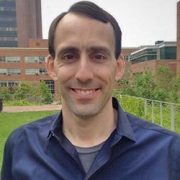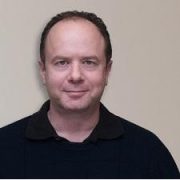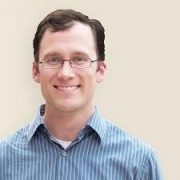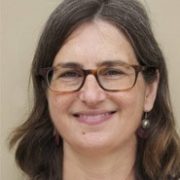Professor Will Conley presented as 2016 My Last Lecture Award Recipient
Please join us in congratulating 2016 My Last Lecture Award Recipient:

Professor Will Conley, UCLA Department of Mathematics
More than 50 years ago, the “My Last Lecture” award was established to honor a UCLA professor who is an inspiration to students. Every year, the Alumni Scholars Club asks students from all over campus to vote for their favorite professor, the one whose teaching has inspired them the most. These notable UCLA professors were given the chance to put all of their life lessons and advice for students into one “last lecture.”
The Alumni Scholars Club (ASC) hosted this year’s ceremony on Tuesday May 17th at the De Neve Auditorium. On this day Professor Conley not only received his award, but also gave an inspiring lecture on the question posed to the original lecturers more than 50 years ago: What would you tell your audience if you had but one lecture to give – your last lecture on this earth?
Congrats, Will, and thank you for your inspirational teaching!
To see past recipients of this award and watch their lectures, please see the UCLA Alumni website here.




 Faculty Student Development DEI Award Recipients: Professor Michael Alfaro, a professor in the Department of Ecology and Evolutionary Biology, is this year’s Faculty Student Development DEI Award recipient. In the Spring of 2014, Professor Alfaro was one of the campus leaders who was tasked with developing a proposal to establish a diversity course requirement for undergraduate students in the College of Letters and Science. The proposal articulated the goals of the diversity requirement at UCLA as well as set criteria for courses satisfying the requirement, including numerous community-based courses. His leadership in this area contributed to the successful passage of the diversity requirement. Professor Alfaro also chaired the Diversity Implementation Committee that was charged with developing a process for syllabi evaluation, determining demand, and existing capacity for the new requirement and identifying additional resources required to mount the requirement for Fall 2015. He currently chairs both the Diversity Initiative Steering Committee and the Diversity Requirement ad hoc Committee.
Faculty Student Development DEI Award Recipients: Professor Michael Alfaro, a professor in the Department of Ecology and Evolutionary Biology, is this year’s Faculty Student Development DEI Award recipient. In the Spring of 2014, Professor Alfaro was one of the campus leaders who was tasked with developing a proposal to establish a diversity course requirement for undergraduate students in the College of Letters and Science. The proposal articulated the goals of the diversity requirement at UCLA as well as set criteria for courses satisfying the requirement, including numerous community-based courses. His leadership in this area contributed to the successful passage of the diversity requirement. Professor Alfaro also chaired the Diversity Implementation Committee that was charged with developing a process for syllabi evaluation, determining demand, and existing capacity for the new requirement and identifying additional resources required to mount the requirement for Fall 2015. He currently chairs both the Diversity Initiative Steering Committee and the Diversity Requirement ad hoc Committee. Staff Diversity, Equity, and Inclusion Award Recipient: Tama Hasson, the Academic Director of the Program for Excellence in Education and Research in the Sciences (PEERS), is this year’s Staff DEI Award recipient. She has personally worked with and mentored more than 1000 students through a variety of programs at UCLA, all of which emphasize the success of students from underserved backgrounds. Dr. Hasson also played a leading role in the development of the curriculum that prepares these students to succeed in majors where they often are not successful. Since arriving at UCLA she has obtained at least 10 grants to support underserved and minority students to achieve educational and research excellence.
Staff Diversity, Equity, and Inclusion Award Recipient: Tama Hasson, the Academic Director of the Program for Excellence in Education and Research in the Sciences (PEERS), is this year’s Staff DEI Award recipient. She has personally worked with and mentored more than 1000 students through a variety of programs at UCLA, all of which emphasize the success of students from underserved backgrounds. Dr. Hasson also played a leading role in the development of the curriculum that prepares these students to succeed in majors where they often are not successful. Since arriving at UCLA she has obtained at least 10 grants to support underserved and minority students to achieve educational and research excellence.


